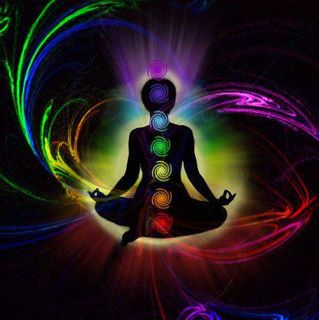Make Mistakes and
Learn
Man’s nature can be described as three-fold: spiritual, intellectual
and instinctive. It is the instinctive nature, the animal-like nature, which
contains the tendencies to harm others. Men who are expressing those tendencies
are young souls who need to learn to harness this force. The Sanatan Dharma
approach to such a man is not to label him evil, but rather to focus on helping
him learn to control his instincts and improve his behaviour.
Important insights into the soul’s maturing process can be gained by
looking at the three powers of God - the power of desire; the power of action;
and the power of wisdom - which are also the three powers of the soul. We first
have a desire, and when the desire becomes strong enough, we act. In young
souls the action may be ill-conceived, even against dharma. For example, a man
wants a computer, so he steals one. Money is needed, so he robs a bank. The
soul is often caught up in repeating a cycle of similar experiences, moving
back and forth from desire to action, desire to action, until the needed lesson
is learned. In the case of the adharmic action of stealing, eventually one
learns the lesson that this is not the best way to acquire possessions. This
learning is the wisdom, causing his behaviour to improve.
For all of mankind, no matter where one is on the path, spiritual
advancement comes from improving one’s behaviour or in other words, learning
from one’s mistakes. Unfortunately, this process is often inhibited by the idea
that somehow, we are not supposed to make mistakes, that mistakes are bad. We
grow up being scolded for our mistakes by our parents. Teachers ridicule
students when they make mistakes. Supervisors yell at workers when they make a
mistake. No wonder many adults feel terrible when they make a mistake. To
spiritually benefit from our mistakes, we need a new attitude toward them. Swamiji
describes mistakes as “wonderful opportunities to learn.” He compared learning
from life’s experiences to progressing through the classes at a university. Life
is a series of experiences, one after another. Each experience can be looked at
as a classroom in the big university of life if we only approach it that way.
Who is going to these classrooms? Who is the member of this university of life?
It’s not our instinctive mind. It’s not our intellectual mind. It’s the body of
our soul, our superconscious self, that wonderful body of light. It’s maturing
under the stress and strain.
Societies and nations must protect themselves with appropriate actions
that restrain wrongful behaviours. But even while punishing those who act with
malicious intent, let us remember they, too, are souls on the journey of
spiritual maturity and discovery. Let the focus be not on categorising humans
as good or evil but on encouraging all to improve their behaviour, by applying
the appropriate remedies and sanctions.



No comments:
Post a Comment